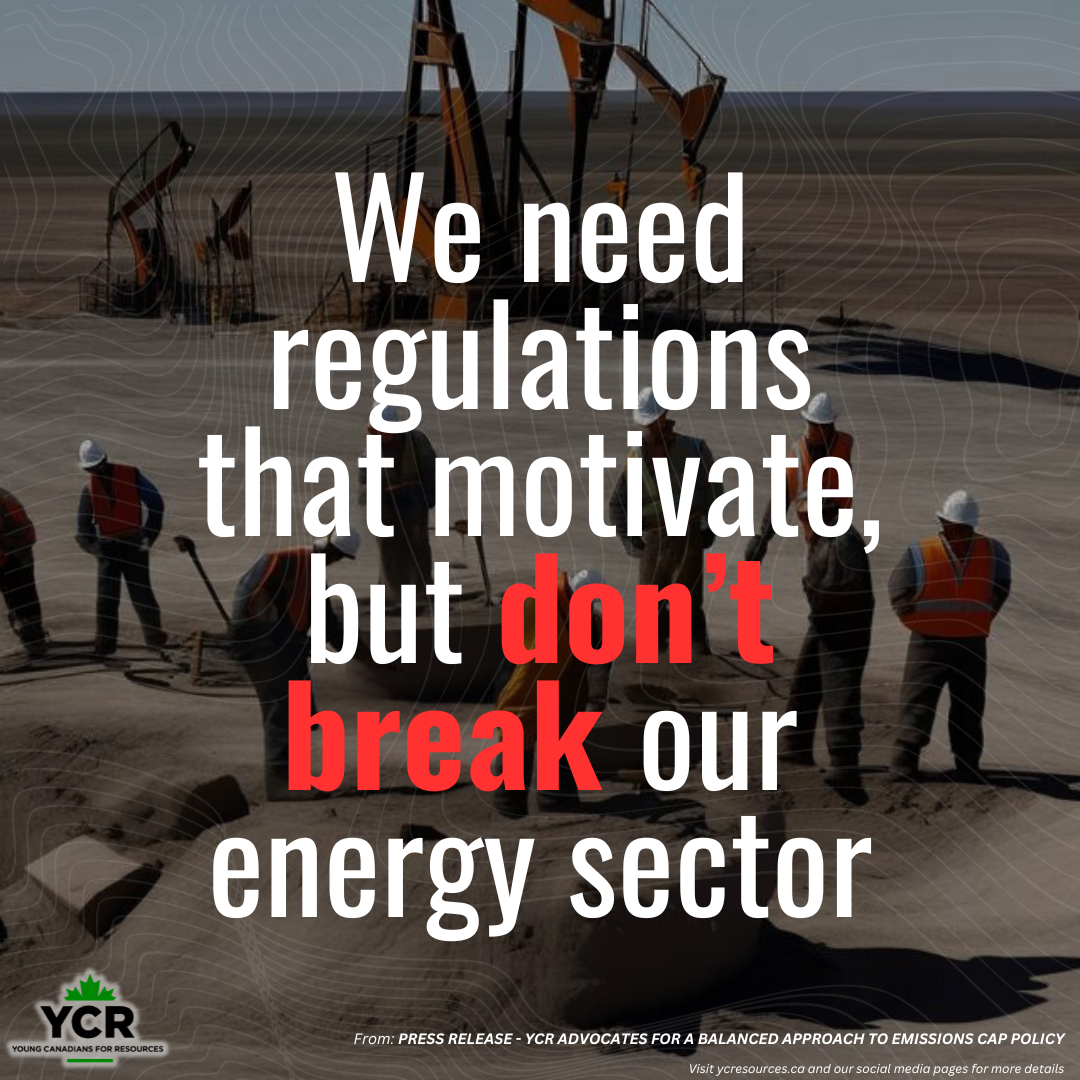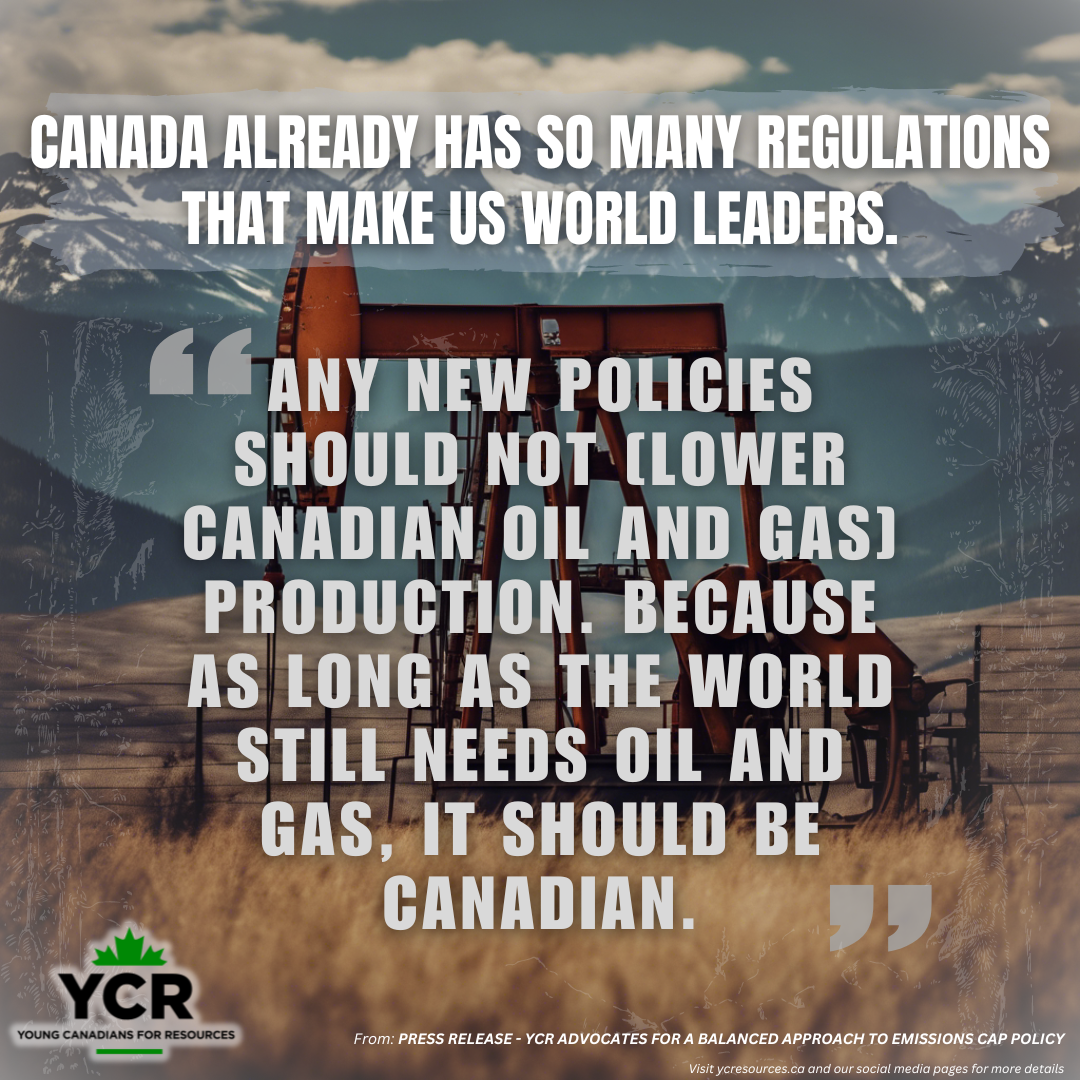William Diaz-Berthiaume – December 18, 2023
When an Emissions Cap Is a Production Cap, It’s A Terrible Idea – Here’s Why
The announcement of a new federal emissions cap framework has sent shockwaves across the country, creating strong reactions from provinces, resource groups, and various others affected by the policy. As a young Canadian, I feel responsible to lend my voice to this issue.
The Federal government has introduced a new emissions cap targeted specifically at upstream oil and gas operations, putting a cap on emissions at between 35% and 38%. While the intention behind the policy may be to address environmental concerns and reduce carbon emissions, a closer examination reveals that it might inadvertently hinder Canada’s economic growth and make the nation increasingly dependent on less responsible, less reliable, and less sustainable oil sources from abroad.
Canada is widely recognized as one of the world’s most responsible producers of oil and gas.
Canada has historically invested significantly in developing and implementing technologies such as carbon capture, utilization, and storage (CCUS), to improve not only our oil and gas sector, but also our energy and resources sectors as a whole. Canadian energy companies have been at the forefront of innovation, striving to balance economic growth with environmental stewardship.
Canada’s oil industry provides Canadian families with enormous economic opportunities, adheres to the world’s strictest environmental regulations, and is world-class regarding emission reductions and improving environmental impacts associated with the extraction and production of critical resources.
Although proponents of the federal government’s emissions cap framework argue that it is a necessary step to meet climate targets and fulfill international commitments, the introduction of a cap such as this threatens to stifle these efforts. This could have unintended consequences for both the environment and the Canadian economy.
A cap on emissions is a cap on production. Canada is the only major oil producing country that places a limit on its own production!
Other countries with less responsible and sustainable practices such as Russia, Iran, or China, will continue to produce oil and gas and make it available for the world to buy. Their share of the market will only grow larger if Canada stifles its industry through an emissions cap.
Oil demand is growing. If Canada doesn’t make itself available as a leading global supplier, other countries with less responsible practices will take advantage of the opportunity.
Additionally, the emissions cap discourages investment due to the uncertainty surrounding future regulatory frameworks. Adding more complexity and uncertainty to existing regulations can deter investors who seek stable and predictable conditions for long-term projects.

To maintain Canada’s position as a global leader in sustainable and responsible energy extraction, a more collaborative and adaptive regulatory approach is necessary— one that encourages investment in sustainable practices and emissions reduction rather than stifling it with rigid emission caps.
There is an alternative to the current emissions cap framework released by the federal government.
This summer, YCR invited students from multiple universities to bring forward ideas for a fair and just emissions cap policy. The criteria was for policies to reduce emissions while allowing the Canadian oil & gas industry to thrive with minimal disruptions.
“All groups concluded that while reducing emissions is always a priority, they were alarmed at how the differences in actual policy and regulations could do more harm than good”, said the organizer Lexi Cook, of Bishop’s University in Quebec. “Canada already has so many regulations that make us world leaders; any new policies should support both lower emissions and higher production. Because as long as the world still needs oil and gas, it should be Canadian.”
In short, a cap on Canadian oil and gas emissions is a cap on Canadian oil and gas production, which entails making Canada more dependent on foreign, less responsibly produced and less reliable sources of energy, raising the cost of energy at home, and negatively impacting the Canadian economy.

